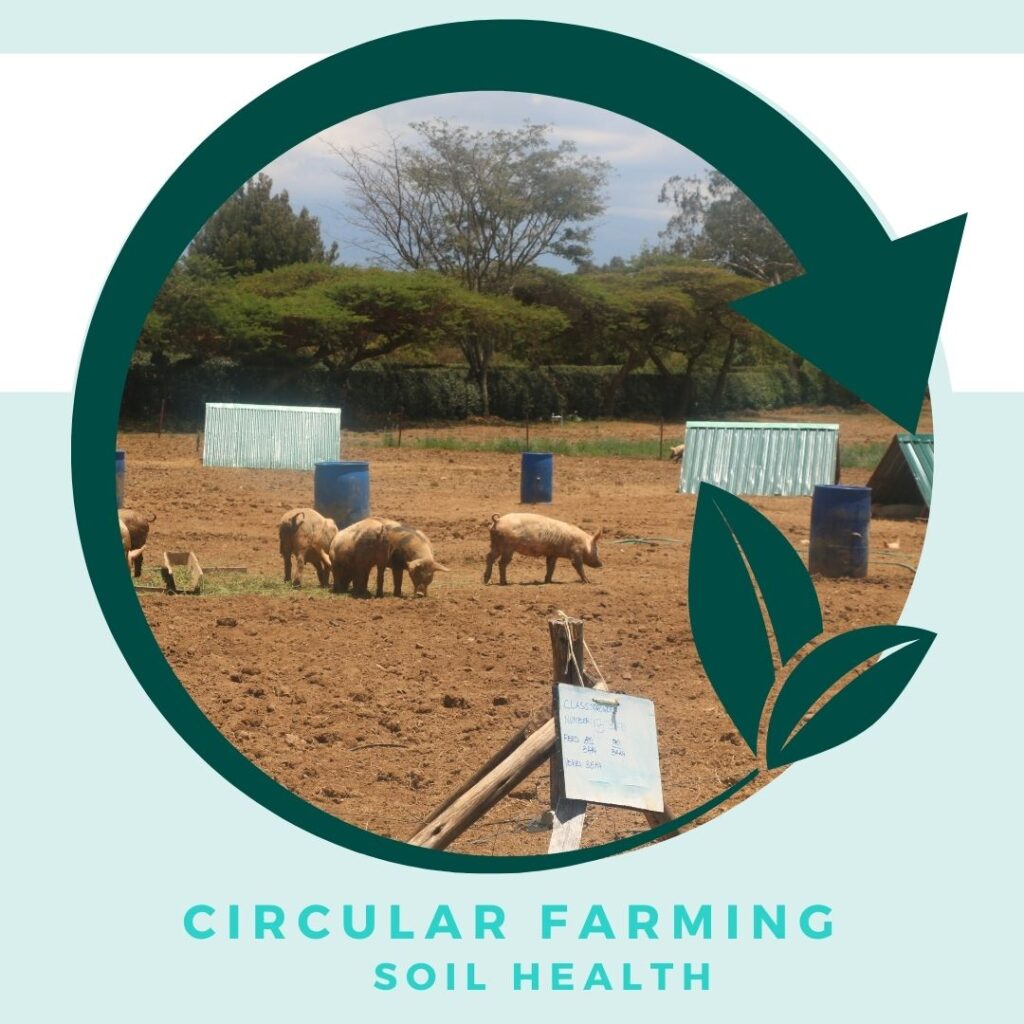Our Circular Farming Initiatives

22 Sep 2022
Tambuzi’s philosophy, and what drives us, is a strong belief that we have to minimize our negative environmental impact and maximize our positive environmental actions to become environmentally sustainable as well as financially sustainable.
To be a success, sustainability must be measured with regards People, Planet, and Profit!
Tambuzi applies circular farming practices. Circular farming not only focuses on good yields and the sparing use of resources and energy but also stresses the importance of putting as little pressure on the environment, nature and climate as possible.
For Tambuzi, circular farming means:
- Using roughage and other feedstocks from field crop production, and horticulture to feed the farm livestock, which in return produce good-quality fertilizer (manure) and urine, both applied as organic fertilizers.
- Using crop remnants that are composted & vermicomposted producing organic mulches to stimulate soil life.
- Making maximum use of soil agrobiodiversity with mixed crops and rotations.
Our growing media is 100% soil, therefore healthy soil is imperative. The health of the soil is largely determined by the quality of the organic material it contains, the balance in groundwater dynamics and the availability of nutrients that are essential for people, animals, and crops: nitrogen, phosphorus, potassium, and a wide range of micronutrients.
Due to the crucial role of nutrients in the cycle, healthy soil is one of the most important foundations for circular farming. Soil fertility and, primarily, the quantity of organic material is not only determining factors for crop yield, but also ensure that nutrients, trace elements, and water are better retained. Not to mention that in healthy fields with healthy soil life, there are fewer illnesses and pests. Something also worth noting increasing the level of organic materials is a natural way to absorb and contain CO2 and other greenhouse gases.
Tambuzi nourishes soil life using a resourceful combination of the following:
- Good quality animal-based fertilizer, preferably manure, our own and outsourced.
- Crop remnants are either composted or vermicomposted (composted manure).
- Liquid fertilizer from vermicomposting leachate, manure tea, and Animal (sheep) urine.
- Bioslurry is a by-product of Biogas production.
- Biochar application.
- Black Soldier Fly larval frass, a granulated and odourless residue, is mainly made up of the castings (poop), leftover food and exoskeletons left behind after all larvae are removed from a compost pile.
- Use of organic mulches (maize stalks, hay, grass)
THE CLIMATE BENEFITS
The key principle of circular farming is to utilize agricultural biomass as often and as effectively as possible. This also means avoiding the natural degradation of unused biomass (crop remnants, fertilizer) and the accompanying production of carbon dioxide, nitrous oxide and methane. This also means less artificial fertilizer is necessary for circular farming so that less CO2 is released during production. High-quality fertilizer (manure, soil, compost) also increases the retention of carbon in the soil, which is a natural way to combat climate change. In turn, circular farming offers options to combat greenhouse gas emissions from agriculture to a far greater extent than the measures that are simply focused on making common agricultural processes more climate-friendly. It is precisely through this combination that agriculture can deliver big results for the climate
 Loading
Loading





